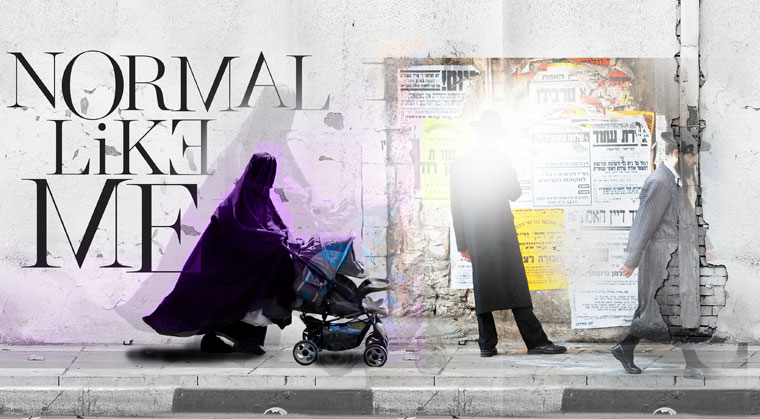Normal Like Me: Chapter 35

Maybe I hadn’t even made it into the news, though. A woman getting shot in the arm because of a misunderstanding with the police wasn’t really that interesting

Sarah: Friday, 6 Kislev 5775
Mommy and Tatty wouldn’t bring me the weekend papers for Shabbos. I mean, they did bring me some, but they “accidentally” left behind the sections I wanted to see. They were in a big hurry, because they wanted to pick up Rivky from gan and buy her a nice dress for the Shabbos sheva brachos.
“And a flowered hair band, and some new tights and shoes,” my mother itemized. “It’s a short Friday. The stores close at one. I hope we can get it all done in time.”
“She has Shabbos shoes!” I protested, but Mommy said those scuffed-up old black patent things would never work for the sheva brachos, and she’d seen just the thing in Psiyot — a burgundy pair on sale for only 360 shekels.
If Tatty shows love by giving money, Mommy does it by buying nice clothes and shoes for her children and grandchildren. So even though I thought 360 shekels was a lot of money for a pair of Shabbos shoes, I kept my mouth shut. You can’t put a price on love.
“It’s all arranged with the morah, I hope?” Tatty asked worriedly.
“Yes, I told her you’d be picking up Rivky today.”
“I hope you didn’t tell her a minute later that your Shawl Lady friends would be picking her up.”
“No, I didn’t,” I said. “And the morah knows she has to follow my instructions, because I have custody… as long as her father doesn’t make trouble.”
It was going on 12, so they wished me a good Shabbos and hurried away. I started leafing through the papers and magazines they’d brought me, looking for some mention of the shooting. Faigy had told me that Monday is the best day for things to happen in the world of the Hebrew-language weeklies. “If something happens later on Tuesday,” she explained, “we barely have time to write something up and get it into the weekend paper, and we have to postpone the other articles we planned. And if something happens on a Sunday, it’s not fresh news anymore by the weekend. Monday is the best day.”
So I’d gotten shot on the best day.
Maybe I hadn’t even made it into the news, though. A woman getting shot in the arm because of a misunderstanding with the police wasn’t really that interesting, not during a time like this when so many terror attacks were happening. The families of the kedoshim killed in Har Nof had just gotten up from shivah, after all, and the police were still investigating the arson that caused that awful fire in East Jerusalem. Meanwhile, there were stabbings, car-rammings, demonstrations, and counter-demonstrations, almost every day. Who would want to read about somebody called Sara’le lying in a hospital bed with implants in her arm where parts of her bones used to be? Who’d be interested in the doctor explaining to his students that what they had here was a wound from a military rifle shot at high velocity? Yes, that’s what he’d said. Nothing about a traumatized human. Apparently the wound had just showed up at the hospital by itself, checked in at the front desk, and been admitted for surgery.
So really, why should I care about what they were saying about me in the papers? I probably wasn’t a story anyway, I told myself, and I started skimming through the women’s and children’s magazines that Tatty had brought. But there was nothing there that caught my interest; I’d already gotten used to not reading such things. Why read magazines, Rabbanit Chana would say, if you can say Tehillim? Isn’t it better to read the words of Dovid Hamelech than the words of some muddle-headed journalist?
(Excerpted from Mishpacha, Issue 701)
Oops! We could not locate your form.



